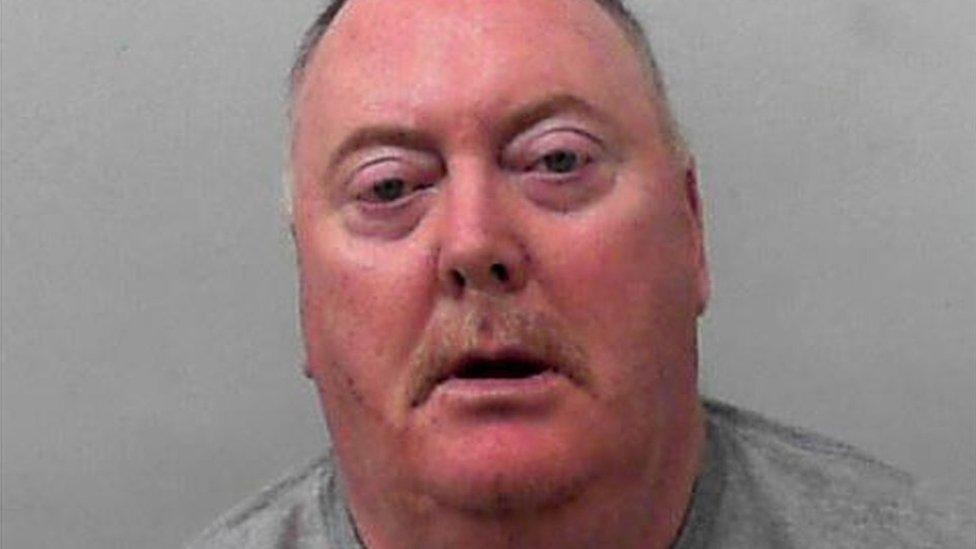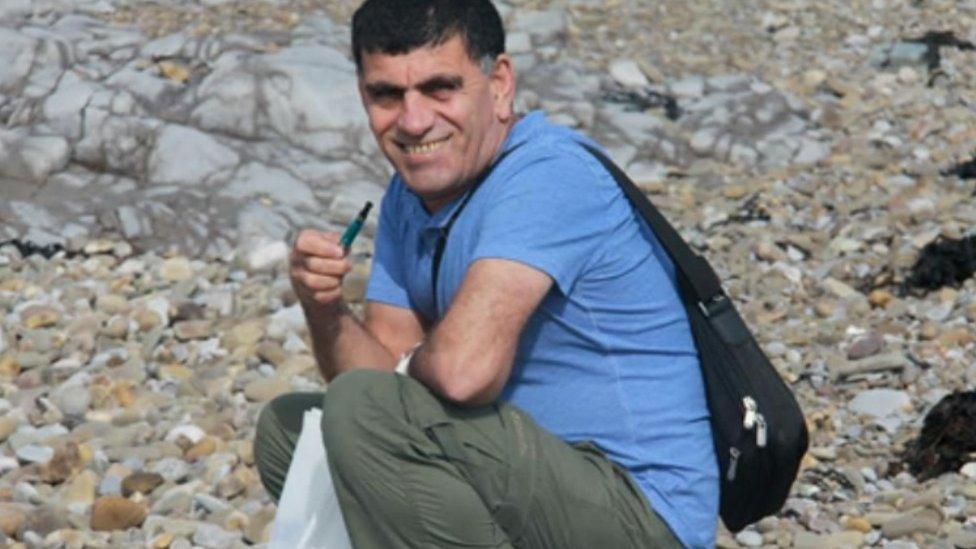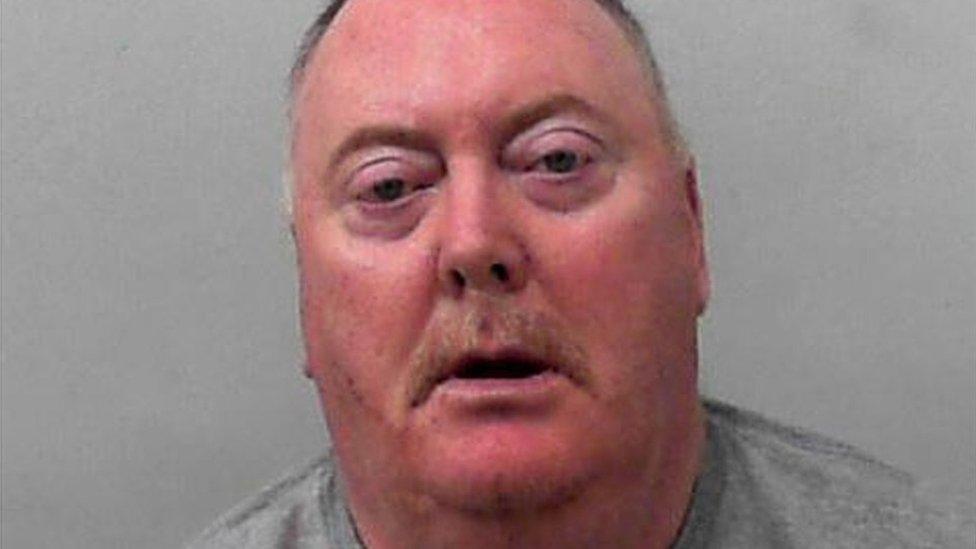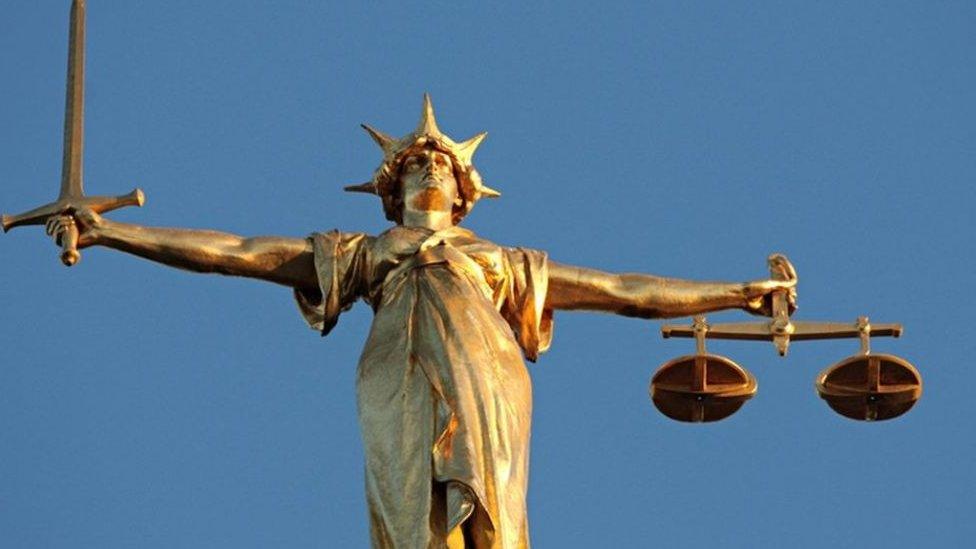Jeffrey Barry release 'blunders' led to neighbour murder
- Published

Jeffrey Barry stabbed Kamil Ahmad more than 25 times
A series of failings led to the murder of a man by a violent schizophrenia patient, the BBC has learned.
Jeffrey Barry stabbed neighbour Kamil Ahmad at their supported flats in Bristol in July 2016, hours after his release from a secure mental hospital.
Barry had been detained after hearing voices and threatening to murder Mr Ahmad.
But an independent panel was not told of his history of violence towards his neighbour before approving his release.
The chief executive of mental health charity Sane said the case was "a catastrophic litany of errors and blunders" and called for an independent inquiry.
Marjorie Wallace said "other lives may be lost" if lessons are not learned.
'Calamitous' failures
Barry is now serving at least 23 years at Broadmoor secure hospital after being found guilty of murdering Mr Ahmad in a "savage and sustained" attack, in which he sliced off the Kurdish refugee's penis.
The judge described the failures leading to his release as being "nothing short of calamitous".
Jeffrey Barry admits killing his neighbour to a 999 call operator
Barry has allowed the BBC to view some of his medical records which show an independent panel approved his release without all the facts.
Because of bed shortages, he was moved from the Callington Road NHS psychiatric hospital to the privately-run Cygnet Hospital in Kewstoke, North Somerset.
Barry did not want to stay and asked for his case to be reviewed - a legal right that all patients have - but his NHS care team were only given 24 hours' notice to compile their notes for the independent panel.
The panel's notes show they were aware Barry had an "extensive psychiatric history" but the details were "not yet available to the clinical team" at the private hospital.
At points they said they were relying on Barry's own recollection of events and believed he would be more at risk of harm than others.
The panel was also not aware of Barry's three-year history of violence towards Mr Ahmad, nor about the withdrawal of key medication a few months before that contributed to his relapse.

Kamil Ahmad was not aware Jeffrey Barry had returned to their supported flats
Mr Ahmad's relatives have said they want to know why Barry was allowed to move back to the supported flats.
Barry was told by the charity that runs them that it did not want him to return after he had made previous threats to Mr Ahmad and others.
Staff at the flats were only given a few hours' notice of his discharge, while Mr Ahmad was unaware Barry had returned.
'Beggars belief'
Ms Wallace said Barry should "never have been released to his sheltered housing" and the case highlighted the failure of psychiatric services which are "under so much pressure, with not enough beds or nurses".
"The case beggars belief, that there should have been such a catastrophic litany of errors and blunders," she added.
Avon and Wiltshire Mental health trust, which was responsible for Barry's care, said: "We acknowledge and agree with the judge regarding the failings in this case and have been working closely with our partner organisations to prevent such an event happening in the future."
A spokesman for Cygnet Hospital said it was only informed the day before the panel took place that it was to be held.
It added that responsibility for informing accommodation providers when a patient is to be released, and for creating care plans, lay with the "relevant mental health NHS Trust responsible for co-ordinating the patient's overall care".
- Published10 November 2017

- Published17 October 2017

- Published3 October 2017
